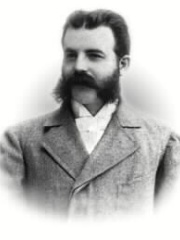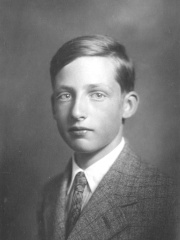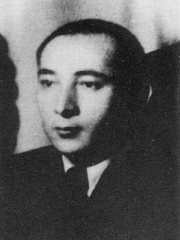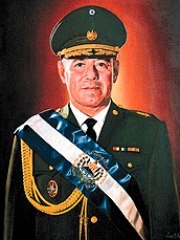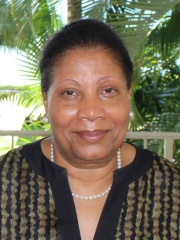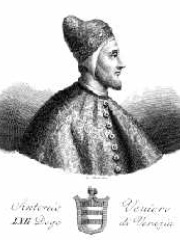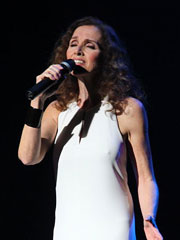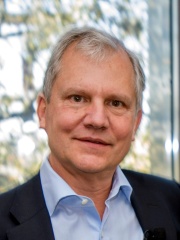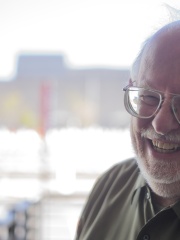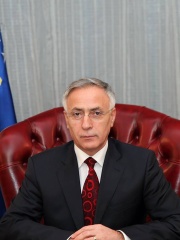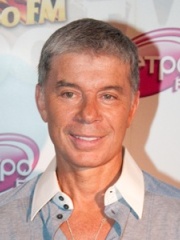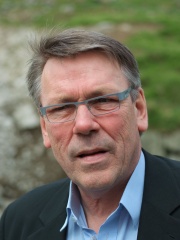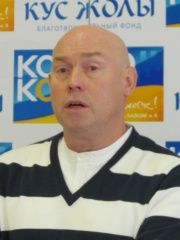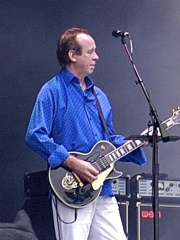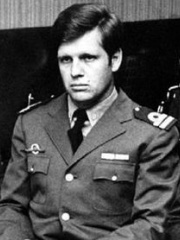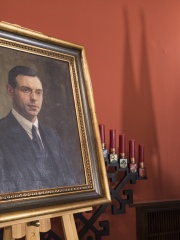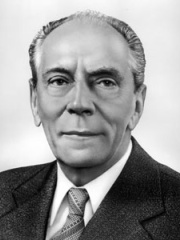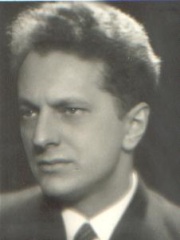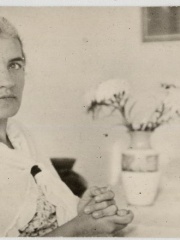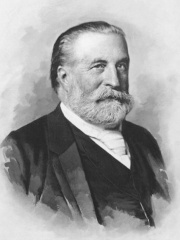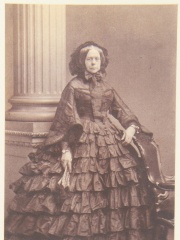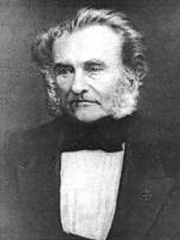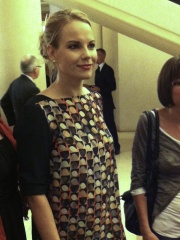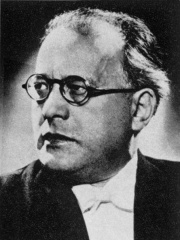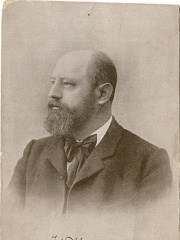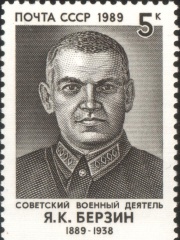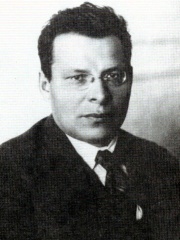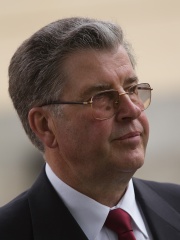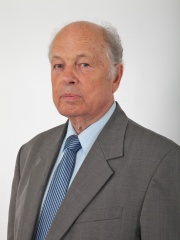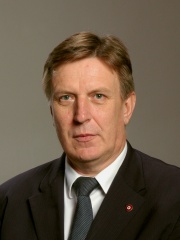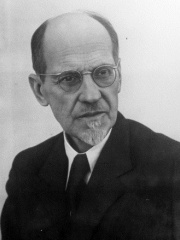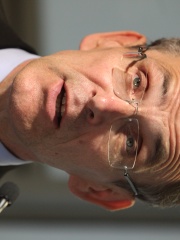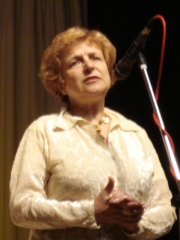POLITICIAN
Andris Bērziņš
1951 - Today
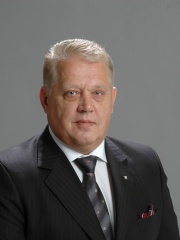
 Andris Bērziņš
Andris Bērziņš
Andris Bērziņš (born 4 August 1951) is a Latvian politician born in Riga. He served as Prime Minister of Latvia from 5 May 2000 to 7 November 2002. He is a member of the Latvian Way political party. Read more on Wikipedia
His biography is available in 28 different languages on Wikipedia. Andris Bērziņš is the 13,068th most popular politician (up from 14,673rd in 2024), the 112th most popular biography from Latvia (up from 145th in 2019) and the 33rd most popular Latvian Politician.
Memorability Metrics
Page views of Andris Bērziņš by language
Among POLITICIANS
Among politicians, Andris Bērziņš ranks 13,068 out of 19,576. Before him are Teodor Teodorov, Kim Boo-kyum, Chris Heunis, Prince Ludwig of Bavaria, Saifuddin Azizi, and Faroald I of Spoleto. After him are Fidel Sánchez Hernández, Louise Lake-Tack, Galindo Garcés, Renseneb, Li Zhaoxing, and Antonio Venier.
Most Popular Politicians in Wikipedia
Go to all RankingsTeodor Teodorov
1859 - 1924
HPI: 58.22
Rank: 13,068
Kim Boo-kyum
1958 - Present
HPI: 58.22
Rank: 13,069
Chris Heunis
1927 - 2006
HPI: 58.21
Rank: 13,070
Prince Ludwig of Bavaria
1913 - 2008
HPI: 58.21
Rank: 13,071
Saifuddin Azizi
1915 - 2003
HPI: 58.21
Rank: 13,072
Faroald I of Spoleto
600 - 592
HPI: 58.21
Rank: 13,073
Andris Bērziņš
1951 - Present
HPI: 58.21
Rank: 13,074
Fidel Sánchez Hernández
1917 - 2003
HPI: 58.21
Rank: 13,075
Louise Lake-Tack
1944 - Present
HPI: 58.21
Rank: 13,076
Galindo Garcés
810 - 844
HPI: 58.21
Rank: 13,077
Renseneb
1800 BC - 1800 BC
HPI: 58.20
Rank: 13,078
Li Zhaoxing
1940 - Present
HPI: 58.20
Rank: 13,079
Antonio Venier
1330 - 1400
HPI: 58.20
Rank: 13,080
Contemporaries
Among people born in 1951, Andris Bērziņš ranks 276. Before him are Ana Belén, Arthur Ochs Sulzberger Jr., Greg Bear, Jakup Krasniqi, Bobby Jones, and Oleg Gazmanov. After him are Enda Kenny, Anthony Phillips, Jóannes Eidesgaard, Viktor Sukhorukov, Phil Manzanera, and Alfredo Astiz.
Others Born in 1951
Go to all RankingsAna Belén
ACTOR
1951 - Present
HPI: 58.46
Rank: 270
Arthur Ochs Sulzberger Jr.
BUSINESSPERSON
1951 - Present
HPI: 58.42
Rank: 271
Greg Bear
WRITER
1951 - 2022
HPI: 58.38
Rank: 272
Jakup Krasniqi
POLITICIAN
1951 - Present
HPI: 58.31
Rank: 273
Bobby Jones
BASKETBALL PLAYER
1951 - Present
HPI: 58.31
Rank: 274
Oleg Gazmanov
SINGER
1951 - Present
HPI: 58.24
Rank: 275
Andris Bērziņš
POLITICIAN
1951 - Present
HPI: 58.21
Rank: 276
Enda Kenny
POLITICIAN
1951 - Present
HPI: 58.12
Rank: 277
Anthony Phillips
MUSICIAN
1951 - Present
HPI: 58.11
Rank: 278
Jóannes Eidesgaard
POLITICIAN
1951 - Present
HPI: 58.10
Rank: 279
Viktor Sukhorukov
ACTOR
1951 - Present
HPI: 58.09
Rank: 280
Phil Manzanera
MUSICIAN
1951 - Present
HPI: 58.08
Rank: 281
Alfredo Astiz
MILITARY PERSONNEL
1951 - Present
HPI: 58.05
Rank: 282
In Latvia
Among people born in Latvia, Andris Bērziņš ranks 112 out of 323. Before him are Zigfrīds Anna Meierovics (1887), Arvīds Pelše (1899), Balys Dvarionas (1904), Zenta Mauriņa (1897), Lya Mara (1897), and Ernst von Bergmann (1836). After him are Duchess Elisabeth Alexandrine of Württemberg (1802), Heinz Christian Pander (1794), Elīna Garanča (1976), Johann Gerhard König (1728), Grzegorz Fitelberg (1879), and Jāzeps Vītols (1863).
Others born in Latvia
Go to all RankingsZigfrīds Anna Meierovics
POLITICIAN
1887 - 1925
HPI: 58.47
Rank: 106
Arvīds Pelše
POLITICIAN
1899 - 1983
HPI: 58.30
Rank: 107
Balys Dvarionas
COMPOSER
1904 - 1972
HPI: 58.27
Rank: 108
Zenta Mauriņa
WRITER
1897 - 1978
HPI: 58.27
Rank: 109
Lya Mara
ACTOR
1897 - 1960
HPI: 58.27
Rank: 110
Ernst von Bergmann
PHYSICIAN
1836 - 1907
HPI: 58.22
Rank: 111
Andris Bērziņš
POLITICIAN
1951 - Present
HPI: 58.21
Rank: 112
Duchess Elisabeth Alexandrine of Württemberg
NOBLEMAN
1802 - 1864
HPI: 58.21
Rank: 113
Heinz Christian Pander
BIOLOGIST
1794 - Present
HPI: 58.15
Rank: 114
Elīna Garanča
SINGER
1976 - Present
HPI: 58.11
Rank: 115
Johann Gerhard König
BIOLOGIST
1728 - 1785
HPI: 58.09
Rank: 116
Grzegorz Fitelberg
CONDUCTOR
1879 - 1953
HPI: 58.03
Rank: 117
Jāzeps Vītols
COMPOSER
1863 - 1948
HPI: 58.03
Rank: 118
Among POLITICIANS In Latvia
Among politicians born in Latvia, Andris Bērziņš ranks 33. Before him are Ivars Godmanis (1951), Jānis K. Bērziņš (1889), Jānis Rudzutaks (1887), Anatolijs Gorbunovs (1942), Zigfrīds Anna Meierovics (1887), and Arvīds Pelše (1899). After him are Alfrēds Rubiks (1935), Māris Kučinskis (1961), Augusts Kirhenšteins (1872), Andris Piebalgs (1957), Helmuts Balderis (1952), and Tatjana Ždanoka (1950).
Ivars Godmanis
1951 - Present
HPI: 60.52
Rank: 27
Jānis K. Bērziņš
1889 - 1938
HPI: 60.51
Rank: 28
Jānis Rudzutaks
1887 - 1938
HPI: 59.24
Rank: 29
Anatolijs Gorbunovs
1942 - Present
HPI: 59.01
Rank: 30
Zigfrīds Anna Meierovics
1887 - 1925
HPI: 58.47
Rank: 31
Arvīds Pelše
1899 - 1983
HPI: 58.30
Rank: 32
Andris Bērziņš
1951 - Present
HPI: 58.21
Rank: 33
Alfrēds Rubiks
1935 - Present
HPI: 58.00
Rank: 34
Māris Kučinskis
1961 - Present
HPI: 57.50
Rank: 35
Augusts Kirhenšteins
1872 - 1963
HPI: 57.42
Rank: 36
Andris Piebalgs
1957 - Present
HPI: 57.35
Rank: 37
Helmuts Balderis
1952 - Present
HPI: 57.26
Rank: 38
Tatjana Ždanoka
1950 - Present
HPI: 57.12
Rank: 39
